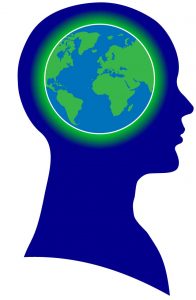 The study of our changing climate has a newcomer: the social psychology of climate change. Professor of Psychology Adam Pearson is helping lead the way with the growth of a new branch he and his collaborators have coined “social climate science.”
The study of our changing climate has a newcomer: the social psychology of climate change. Professor of Psychology Adam Pearson is helping lead the way with the growth of a new branch he and his collaborators have coined “social climate science.”
What’s Next For:
Revolutions?
Syria?
Mexico?
Japan?
The United States?
Earthquake Safety?
Climate Action?
California Water?
Climate Science?
Solar Energy?
California Fruit Farming?
Technology Investing?
Nanoscience?
Digital Storage?
Artificial Intelligence?
Cyber-Threats?
Social Media?
Space Exploration?
Science Museums?
The Sagehen?
Biodiversity?
The Blind?
Big Data?
Mental Illness?
Health Care Apps?
Maternity Care?
Etiquette?
Ballroom Dance?
Thrill Seekers?
Outdoor Recreation?
Funerals?
Writers?
Movies?
Manga?
Alt Rock?
Women in Mathematics?
Pearson is working with other psychologists interested in what motivates different groups to get involved with the issue of climate change and how decision-makers and influencers can engage a broader segment of the population around these issues. Pearson recently co-edited a special issue of Group Processes & Intergroup Relations that seeks to understand how group dynamics influence how people perceive and respond to climate change, including groups we may often not think about when it comes to environmental problems.
“There’s a myth of the white environmentalist,” says Pearson. “There’s a perception that Whites are most concerned about climate change, but when you look at public opinion polls, those surveys show that minority groups, specifically Latinos, Asian Americans and African Americans, and lower-income Americans are as or more concerned about environmental issues than the prototypic image of an environmentalist often encountered in the media, who is White, affluent, and highly-educated. Some minority groups like Latinos and Asian Americans identify more as environmentalists than Whites.”
Pearson adds that scientists and practitioners need to better understand the consequences of these prevalent stereotypes. That understanding will help answer questions of how people in power—environmental advocates and policy-makers—can better engage minority groups who represent a fast-growing segment of the US public and are often the most negatively impacted by issues like climate change.
“All groups need a say for creating communities that are livable—whether living in coastal areas facing flooding, hurricanes, wildfires, air pollution, or soil contamination. Take the textbook examples of the Flint water crisis or Hurricane Katrina. Some segments of the public were disproportionately affected by these crises, and climate change will exacerbate these disparities.”
Pearson points to the past few decades of research on health disparities and how cross-disciplinary collaborations have helped move the needle on global issues like the HIV/AIDS epidemic that also disproportionately affect communities of color. “There are blueprints out there and a lot of that work comes from within my field, from psychology. Psychologists have contributed to reducing health disparities, and I’m optimistic that we can do the same for environmental disparities.”
